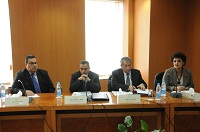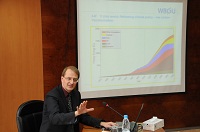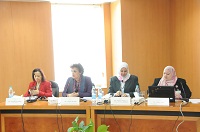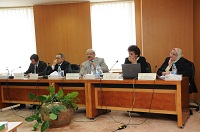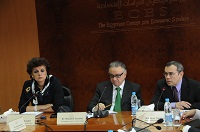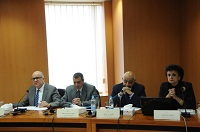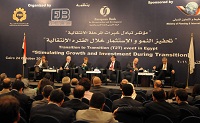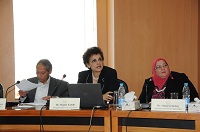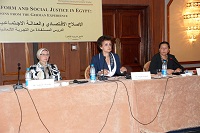The most important objectives of the global transformation of energy use are: limiting global energy demand and ensuring access to modern, sustainable energy services for all, decarbonising the energy supply, and introducing new low-carbon technologies in the transport sector, in buildings, and in industry. International cooperation is essential in order to accelerate the development of […]
The roundtable drew on previous studies conducted by ECES in this respect, which concluded that the poor in Egypt stand to benefit considerably if they opt to convert their dead capital (unregistered assets) into viable economic assets that could serve as collateral to increase their access to credit and their integration in economic activity. The […]
This roundtable discussion analyzed aspects of disparity in wage distribution across sectors and regions, based on productivity and cost of living. Subsequently, the roundtable drew on international experience to offer suggestions that could aid the formulation of a minimum wage policy that achieves social justice, taking into account productivity, employment, industrial policy dynamics and investment […]
Closer to home, Europe is the number one trading partner for Egypt, accounting for approximately one third of its total exports and imports, and is deemed a major source of FDI and financial investments for the country. Hence, the prospects of slow recovery in Europe casts further shadow on the recovery of the Egyptian economy, […]
Despite significant shares in GDP and employment, the support to SMEs has yet to effectively realize their potential in creating and sustaining inclusive growth. Several constraints hamper SMEs operations and growth, including lack of access to financing, inability to hire formally given rigidity in the labor law, weak complementarity with large upstream and downstream enterprises, […]

